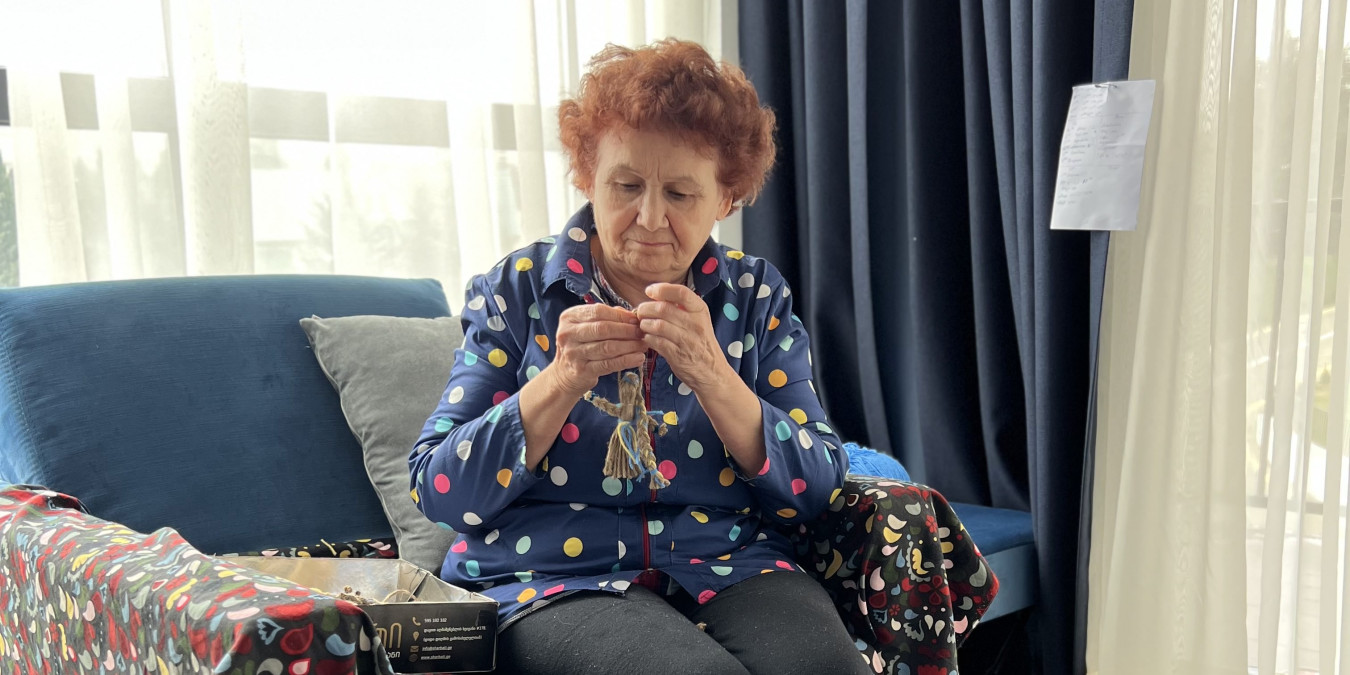A Winter of Worries for Ukrainians in Georgia
Published: Dec 21, 2022 Reading time: 3 minutes Share: Share an articleWinter has arrived in Georgia. For the last two days, there has been significant snowfall and plummeting temperatures in Tbilisi. We are all watching the news and following the fate of Ukrainians suffering sub-zero temperatures already, made worse by Russian targeting of civilian infrastructure such as electricity.

Whilst Ukrainians have been arriving in Georgia since the beginning of the war, little is written about the 25,000 Ukrainians who have not managed to reach a third country, such as Germany or Canada. Most Ukrainians who have remained here, in Georgia, are from the currently occupied areas of eastern Ukraine and do not feel that there is much for them to return to.
"Tamara" is a 71-year-old grandmother currently living in hotel accommodation funded through a joint programme with 'United Together', a Ukrainian CSO and People in Need (PIN) Georgia. Until as recently as October, Tamara was the head of a laboratory in a factory in Zaporizhzhia. She left Ukraine on 22nd November and made the trip that many others are making, crossing through Crimea, Russia, and finally across the Georgian border at Larsi. Tamara is here with her young granddaughter. For now, her granddaughter can attend online classes with her school back home in Ukraine. Of course, her school day is punctuated by interruptions in connection due to the lack of electricity or missile attacks which affect the school's connectivity. Tamara was not keen to leave her home and only did so because her factory closed down due to the level of fighting. The frustration in her voice and tears in her eyes struck a chord with all of us in the room: "what did we do to deserve this?"
The hotel where I met Tamara has allotted two floors for Ukrainian refugees. Compared to the overall figures of Ukrainians in Georgia, this hotel can only accommodate a small number of them. Many of the Ukrainian refugees I spoke to prefer living in a communal environment with people who understand what they have witnessed and what they have fled from. Unlike Tamara's compatriots compelled by circumstance to seek accommodation in private apartments in Georgia, the hotel is warm and recently renovated. All families can access basic kitchen supplies and make meals in their rooms. The Ukrainian refugees know that the hotel is only a temporary solution. While Georgian CSOs and activists are providing current accommodation through significant crowd-funding efforts, once the capacity of Georgian society dries up, the refugees will have no options left. When I asked what the alternative was, given that rental accommodation was now prohibitively expensive in Georgia, particularly in Tbilisi, most of them agreed that it would possibly mean having to move on from Georgia, potentially returning home to further insecurity and uncertainty.



